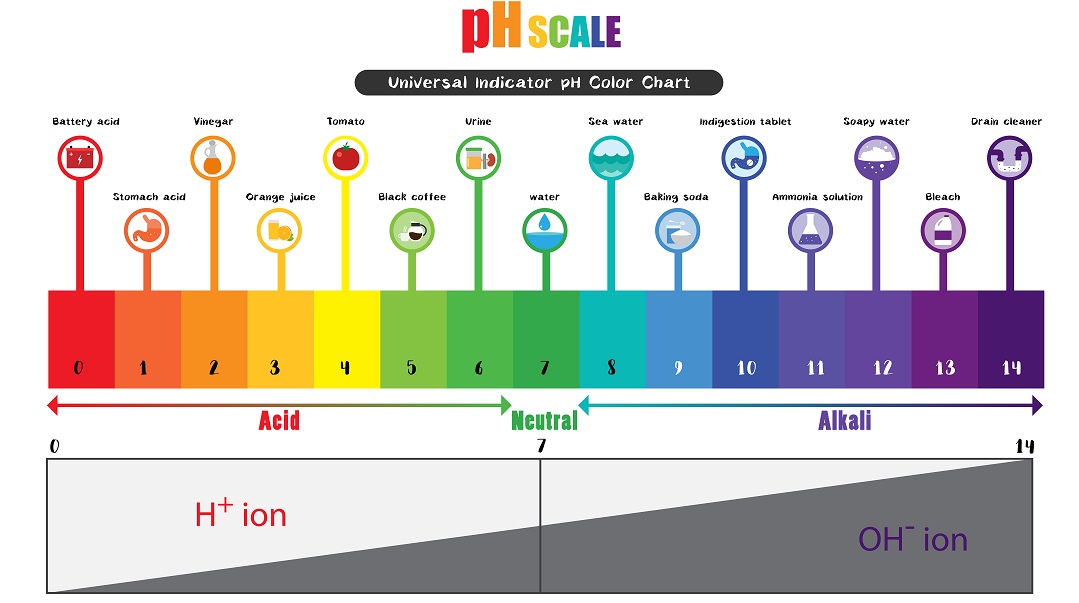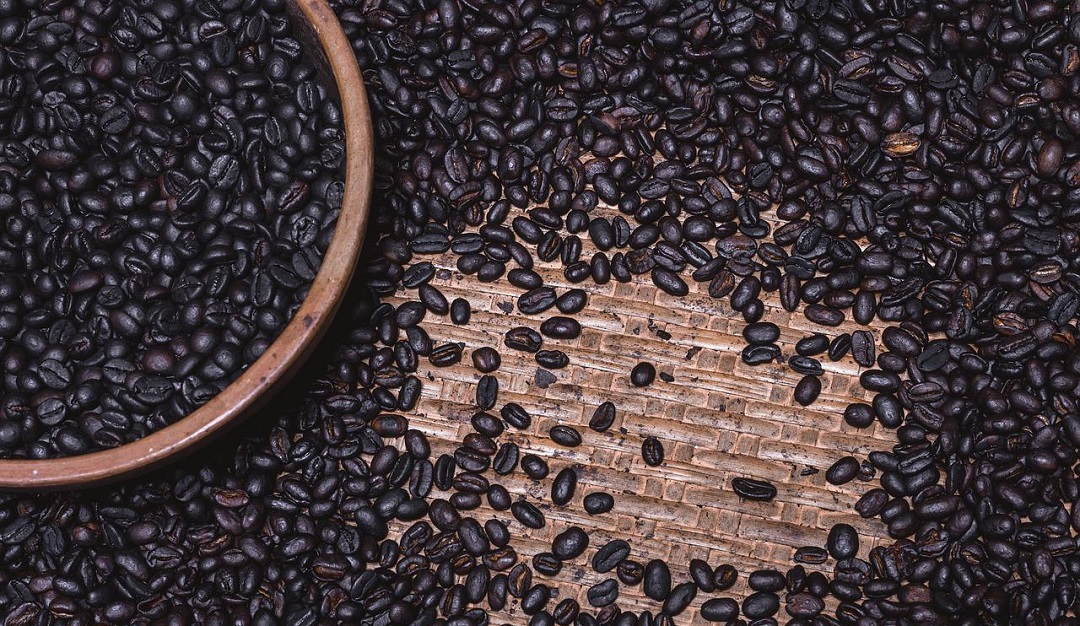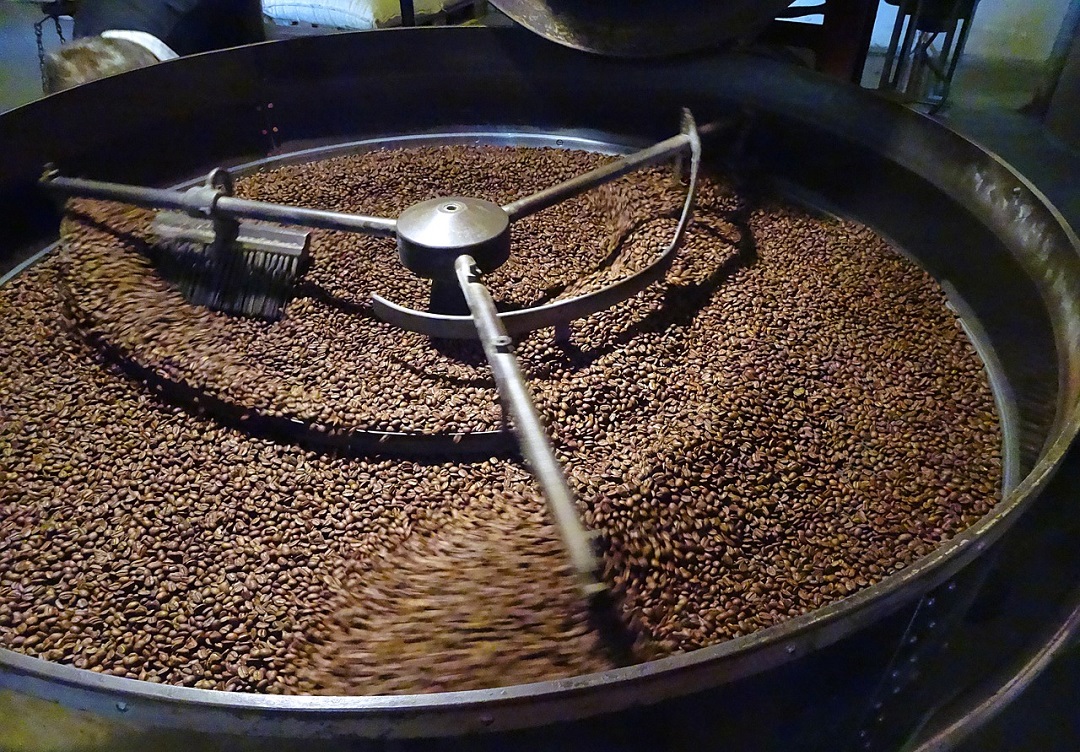Free Shipping on all coffee orders over $40
Free Shipping on all coffee orders over $40

Have you ever been surprised by the bitterness of your sipping coffee? This is because coffee contains acid, which can cause problems for some people. While some level of acidity in a cup of coffee adds to the flavour, the intensity might result in physical discomfort and heartburn. And that is the last thing we want while trying to enjoy one good mug of morning coffee, isn't it?
When it comes to acidity, coffee beverages can have varying degrees of bitterness, from mild and smooth to intense and metallic. Without going deep into the science of atoms and molecules, the pH of a substance determines its acidity or base classification. Bases are alkaline chemical elements with a pH of 7.0 or higher. The pH of the acid is less than 7.0. When dissolved in water, the base turns the red litmus paper blue. The acid makes the blue litmus paper red.

On the pH scale, coffee's acidity ranges from 4.85 to 5.10, making it acidic rather than the base. And coffee with an average pH of 5.0 is a perfect balance of sweetness with the right hint of acidity.

Cold brews are best for non-bitter coffee, as the brewing method tends to reduce bitterness by default. Instead of using hot water to extract flavour and caffeine from the coffee beans, cold brew coffee is soaked in cold water for 12 to 24 hours to count on time. However, it is very effective and leaves you with a smooth, refreshing, delicious and provides a stimulating amount of caffeine without brewing hot coffee's noticeable acidity and bitterness. And this is why cold-brewed coffee has become more popular among coffee drinkers in recent years.
So if you want to reduce the acidity this way, you need to be patient or prepare coffee in advance. The ground coffee beans are soaked in cold water for at least 24 hours in this method. Coldwater does not remove natural acids from coffee as quickly as hot water. The acidity of coffee is mainly due to the oil of coffee beans, and these oils require high temperatures to release acid, which is impossible with cold brews. As a result, you get a cup of coffee with around 70% compared to coffee made through hot brewing.

It's not just the acidity that you have to worry about. Digestion requires your own body to secrete acid, and how your coffee is roasted actually affects the amount of stomach acid you produce. And when it comes to choosing coffee beans with lower acidity for your brew, it's all about the roasting process. All coffee beans start with the same raw or green beans. The roasting process determines the colour and the acidity that is retained. Dark roasted coffee has a light and fruity note with a taste that contains a high level of the natural acidity of coffee beans, making a pleasant cup of coffee with just the right balance. It may seem counterintuitive, but dark beans are the best bet for a happy tummy. And it is also clear that roasted coffee beans become less acidic at higher temperatures, so the lighter the roast, the higher the acidity.

As we discussed in the previous section, shortening the coffee brewing time reduces the acidity of the coffee. This is because the longer the brewing time, the more likely the coffee is exposed to heat, which raises the coffee's pH. However, if the brewing time is short, it may taste bitter. Therefore, you need to experiment with the time it takes to get the flavour you need. It's best to soak for 3 minutes before adding hot water on a French press. This allows you to extract the maximum flavour from the coffee beans. Therefore, try to reduce the brewing time to reduce the acidity of the coffee.

Eggshells may be the last thing you think should be incorporated into coffee brewing. But hear us out. Eggshells are one of the most effective ways of reducing the excessive acidity of your coffee. How? Well, eggshell is mainly composed of calcium carbonate, an alkaline material that helps balance the taste of sour coffee. All alkaline ones interact with acids and, when used adequately, neutralize some or all of the acids. This means that mixing eggshells with bitter coffee reduces the acidity of the finished pot. As a result, the taste of coffee becomes neither too strong nor bitter.

Looking for coffee with less acidity but without any hassle? Consider finely grinding your coffee beans. Finely ground coffee helps reduce the sourness of the coffee. In addition, the smaller the soil, the more surface area it exposes and the more flavours and aroma compounds are extracted.
Coarse grit has a small surface area, which slows the extraction rate. With coarse grinding, the extraction may result in more acidic coffee. The moment the water comes in contact with the coffee, the taste and aroma begin to diffuse into the water. Acid is a particular symptom of extracted coffee. This results in acidity when your ground is too coarse or the brewing time is too short.
While the extra tinge and acidity are unavoidable, you can always choose a fine blend from premium coffee roasters.
As a starting point, consider one of the clever hacks mentioned above to reduce the acidity of your coffee and give it a try. If you don't want to change anything, use an acid-reducing agent to keep your coffee in its current state. Finally, choose a blend from the premium coffee roasters of your choice to get the perfect cup of Joe you want.
Sign up to our mailing list for all the latest updates, interesting articles, new deluxe coffee releases, and more......

Copyright 2024 @ Gridlock Coffee. All Rights Reserved. Ecommerce site by WebCommander
Roastery
8 Beatrice Ave
Heidelberg West VIC. 3081
By appointment only.
(03) 9459 9333 info@gridlockcoffee.com.au